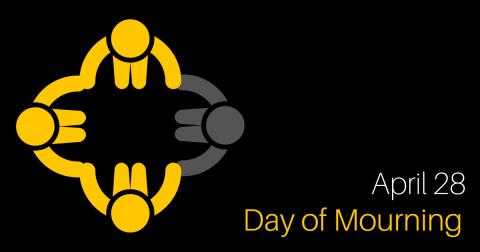
Who’s counting?
April 28 is the National Day of Mourning when we remember those who have lost their lives or suffered injury and illness because of their work.
Every day there are opportunities to prevent workplace injury and death, but we can’t do it without the data we need to drive our decision-making.
In Canada, we collect statistics on many things including the weather, but we fail to accurately record the number of individuals who have died as a result of their work. Because of this, we do not learn the lessons that would allow us to prevent future tragedies.
Apart from data compiled by Workers’ Compensation on workplace injuries and fatalities, no Canadian department or agency is actually counting occupational fatalities and injuries. The widely quoted 951 fatalities in the 2017 statistics (the most recent year available) from the Association of Workers’ Compensation Board of Canada (AWCBC) should not be used as the sole benchmark for work-related fatalities or injuries. The AWCBC figures only account for approved compensation claims, not the actual total of injuries and fatalities that occurred in any given year. Recent Canadian research demonstrates that work-related fatalities could be as much as 10 to 13 times higher than official data indicates.
This lack of reporting means thousands of injuries and deaths are missing from occupational health and safety statistics. These include workers exempt from coverage like the self-employed, banking employees, domestic workers, many farmers and agricultural workers, commuting fatalities, stress-induced suicides, unapproved occupational diseases, employees of private clubs, and temporary or undocumented workers.
In addition, in the federal sector, when a person dies due to a particular hazard, the compensation board does not provide the root cause analysis to employers. The Coroner does not give employers a notice of death, nor is the root cause of the injury or fatality necessarily considered in the required hazard prevention program – as though every fatality is “an accident.”
Let’s push to make 2019 the year that the government of Canada begins to accurately document and use evidence-based recording to prevent workplace injuries and save lives. One is too many — no one should die on the job.